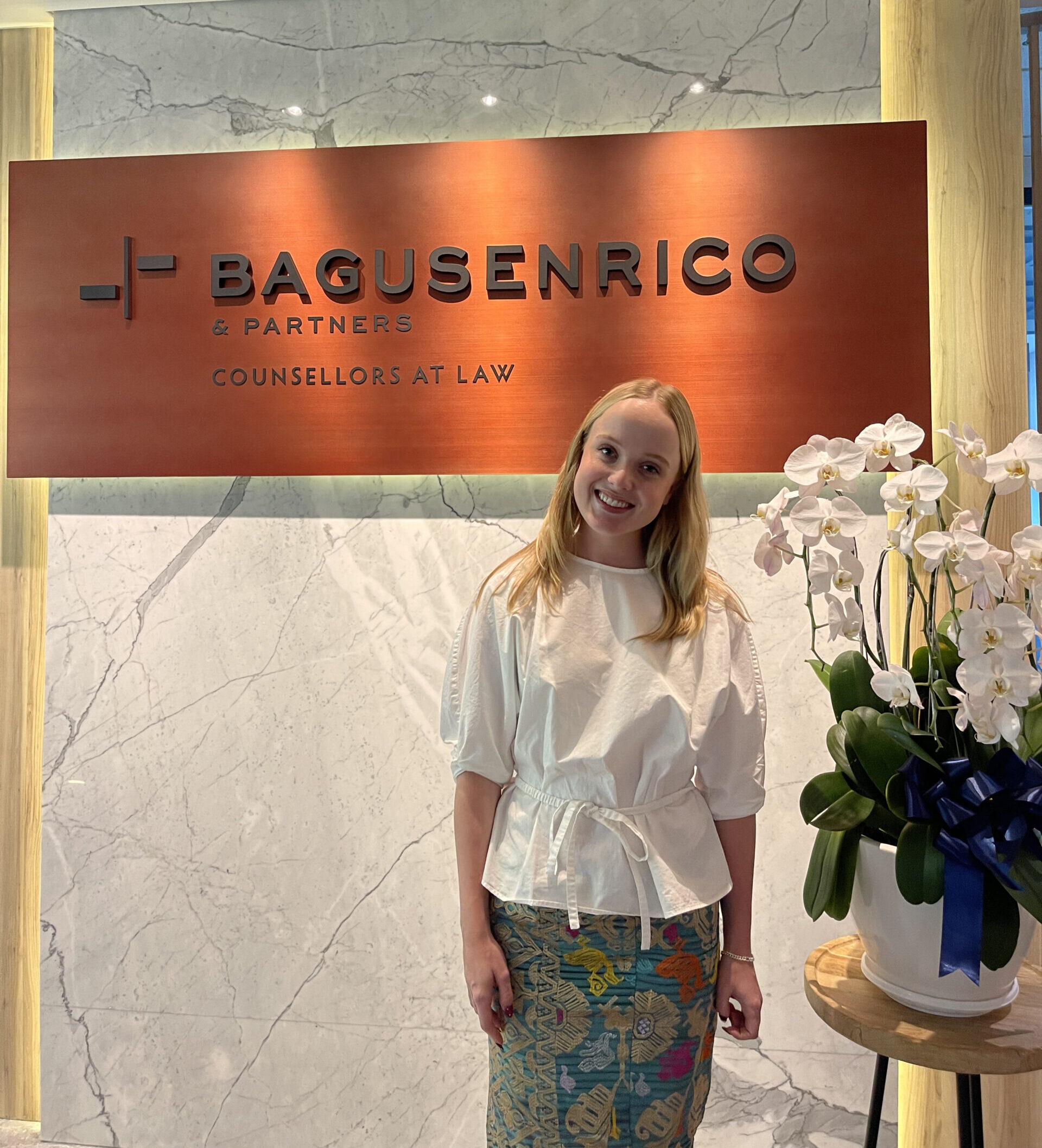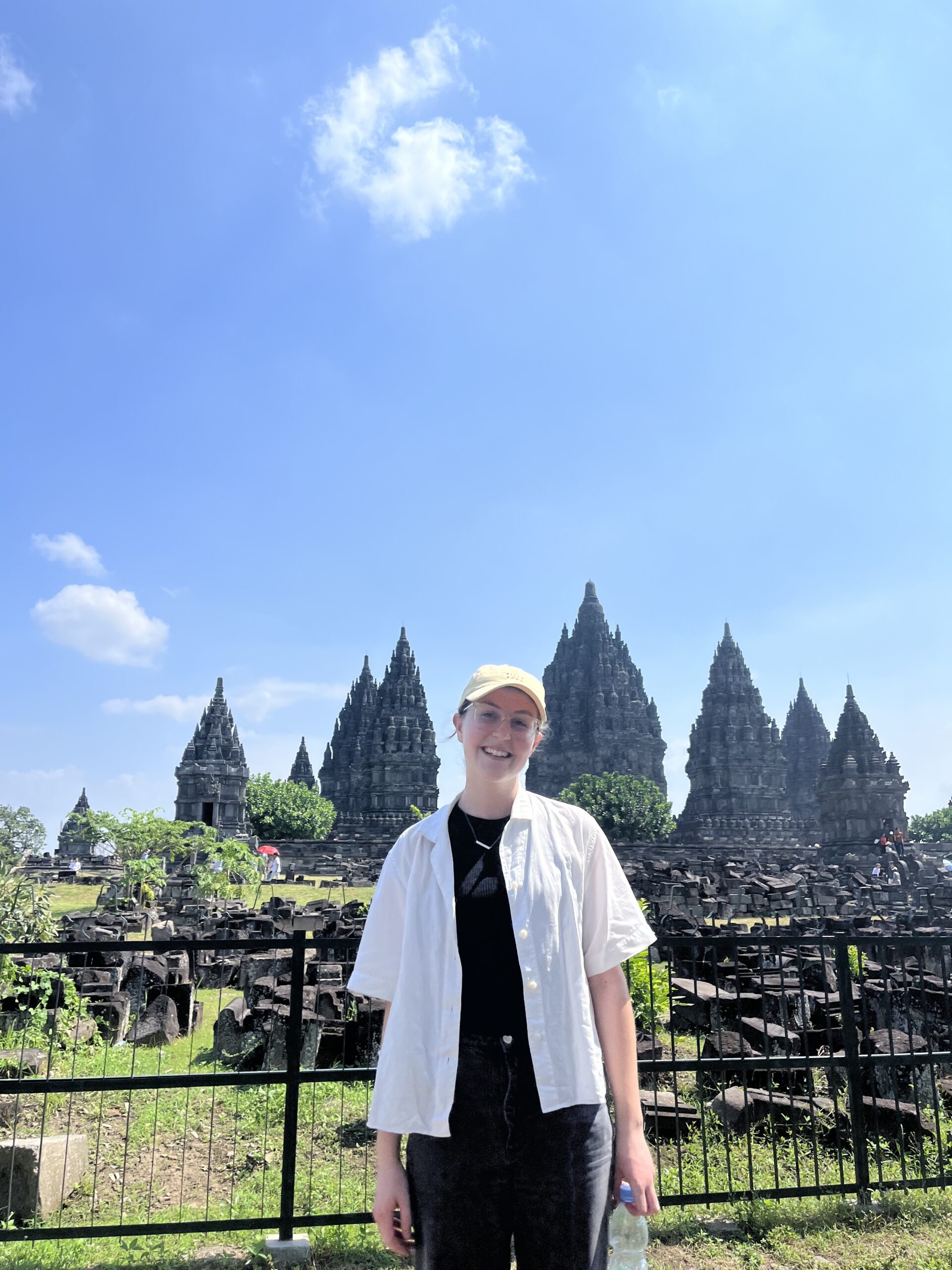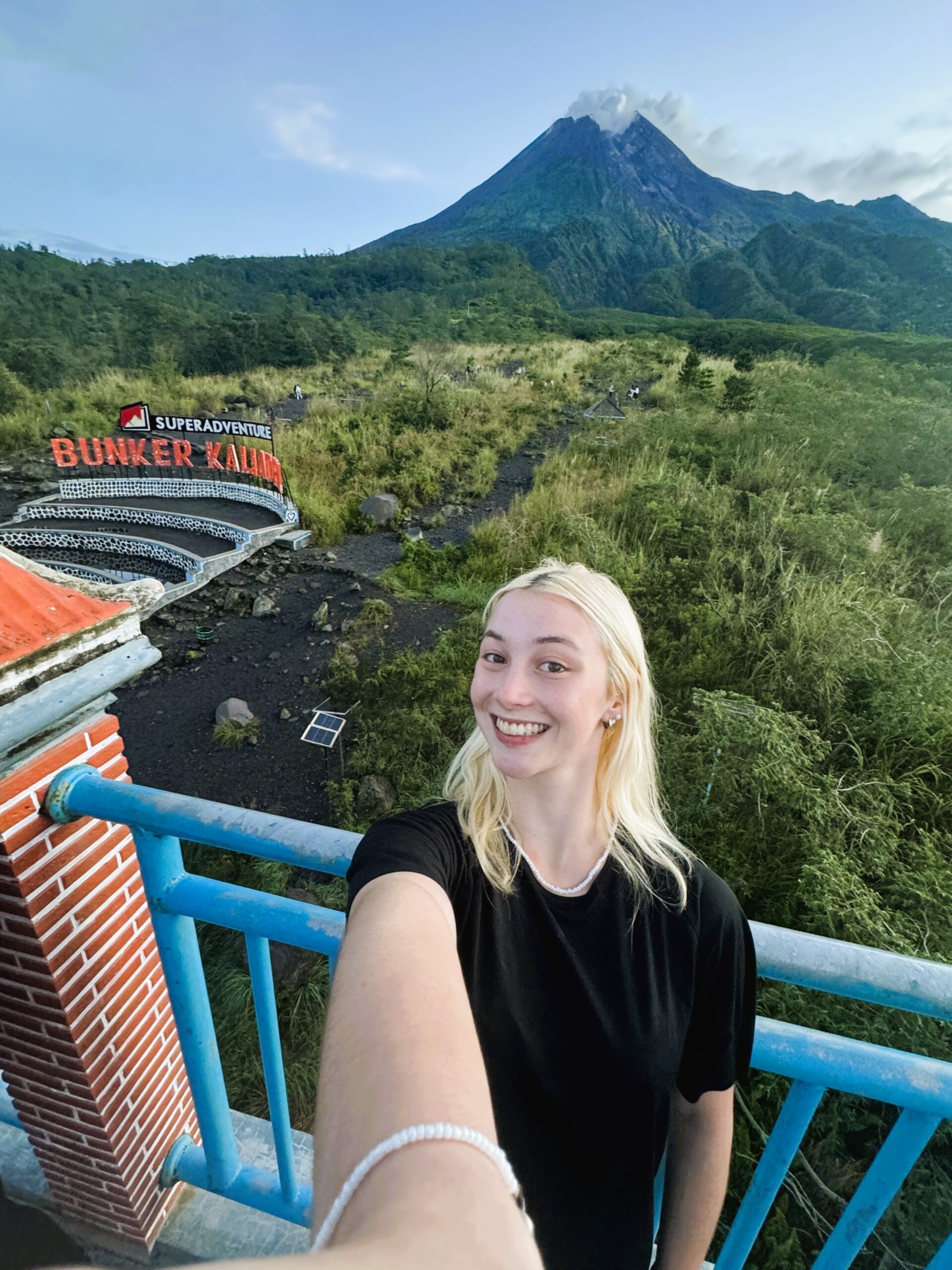Jess O’Connor was a participant of the Law Professional Practicum (LPP), in 2025. Jess is studying at Monash University.
Q: Why did you decide to undertake the Acicis internship program?
I discovered the Acicis internship program on the Monash Law Instagram page and immediately applied when I saw it. I am interested in international law, and this provided a unique opportunity to do an internship overseas, learn about international law, and visit a country I had never been to. Since my Uncle Nyoman is originally from Indonesia, I have grown up feeling a sense of shame about my limited knowledge of his culture and heritage, especially because I am so close with my half-Indonesian cousins.
Q: Did you receive a New Colombo Plan Mobility Grant? Do you think the NCP is an important initiative? If yes, why?
I was fortunate to receive a $4,000 New Colombo Mobility Grant to assist with my participation in this program. This initiative is vital in helping Australian students build connections with peers and professionals throughout the Indo-Pacific region. While in Jakarta, I formed meaningful relationships with locals and developed a deep connection to Indonesia, motivating me to contribute to positive change there. I am keen to work in Japan, Singapore, or Indonesia after graduation, and this experience has given me invaluable exposure to employment opportunities in the region that may have been challenging to access otherwise. I look forward to applying for another program supported by the New Colombo Plan Mobility Grant before I complete my studies.
Q: Where did you live in Indonesia (Kos, homestay, hotel, rental etc.)? Any tips for prospective students on finding accommodation?
I stayed in a hotel called La Boheme Rooms and Coffee in Setiabudi, which I chose for its convenience, being just a ten-minute drive from my workplace in Kuningan. This was especially helpful on days when traffic was heavy or when it rained, as it can be tricky to secure a Grab during wet weather. I lived alone and valued having my own space to unwind after a busy day. That said, I was fortunate to have friends living just a two-minute walk away, which was a perfect balance when we wanted to nongkrong, eat martabak and stay up late talking. While the program involves a lot of socialising, the connections you make with others become like family. I would recommend spending as much time with them as you can, as you will miss them once it is over.
Q: How have you found the academic components of this program – i.e. the language classes/seminars?
The language classes were definitely one of my favourite parts of the program. My teacher, Ibu Ayu, was the best language teacher I have ever had. In just two weeks with her, I learned more about Bahasa Indonesia than I did studying Japanese for three years in high school. The enthusiasm in the class, with everyone keen to learn a new language, created such a positive and fun atmosphere. I looked forward to each class and missed them when they ended. I also appreciated the seminars as they provided insights into Indonesia’s legal framework, equipping me with foundational knowledge before delving deeper during my internship.
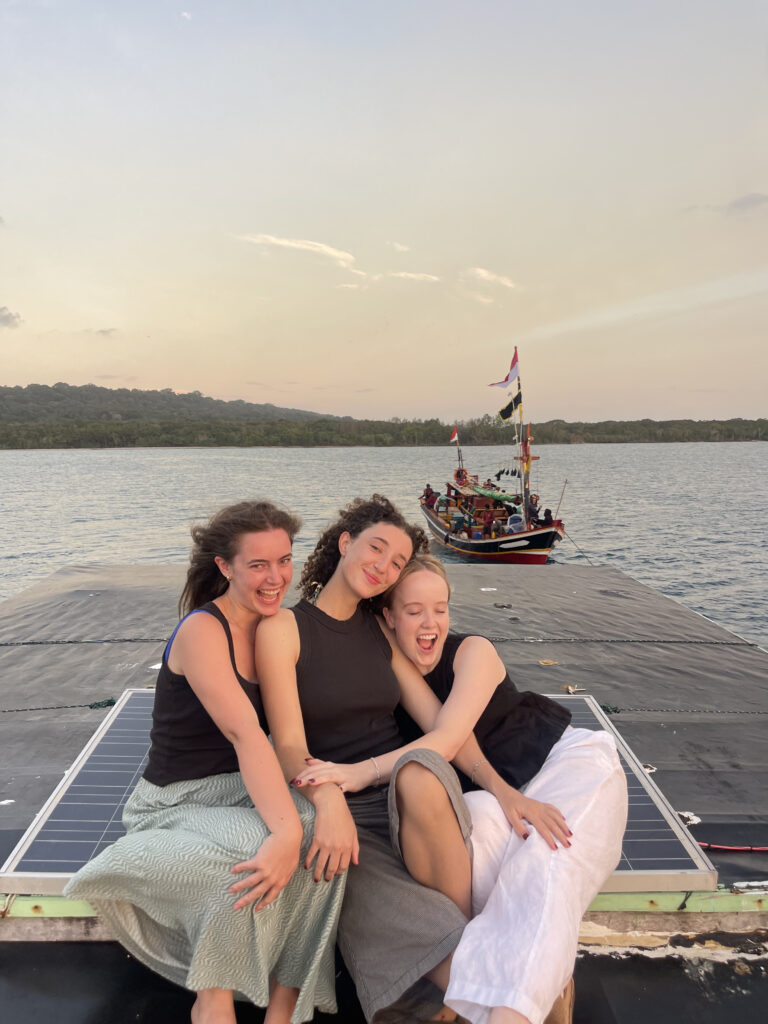
Q: What organisation are you interning with? (Explain your role and responsibilities)
I interned at Bagus Enrico and Partners in Kuningan, working from 9 pm to 6 pm, Monday to Friday, for four weeks. We participated in comparative presentations alongside local Indonesian interns from the University of Indonesia and Universitas Gadjah Mada. My fellow Acicis interns, Indah, Louis, and I, presented on Australian laws while our Indonesian counterparts addressed Indonesian laws. We completed four presentations covering blockchain regulation, company law, employment law, and dispute resolution mechanisms.
I found it really beneficial to learn about foreign laws by comparing and contrasting them with those I am more familiar with. I also drafted three articles: a comparison of land ownership, online gambling regulation in Indonesia, and whether Australia’s Intellectual Property enforcement framework serves as an effective model for Indonesia in protecting its creative economy.
Q: How have you found the work culture of your host organisation? How is it different to work experience in Australia?
I loved working at Bagus Enrico and did not want to leave. We were given a traditional Indonesian lunch daily, which excited me to come to work. Everyone was so welcoming and friendly from the moment we arrived at the office.
Q: What are the main skills you have learnt during your internship?
I loved connecting with Partner Enrico over interests beyond law, as we are both art lovers. Enrico boasts an incredible art collection in the office, which he told me he displays to introduce clients to Indonesian history. It was the first thing I noticed when I walked into the office. This experience highlighted the importance of connecting with professionals beyond legal discussions and resonating on other levels. I also appreciated that my fellow interns and I recognised each other’s strengths. When we were presented with options for potential research topics, we encouraged each other to do tasks that aligned with our interests and strengths. For example, my fellow intern, Louis, was interested in blockchain regulation, so he became our go-to person for all things to do with tech regulation.
Q: What did you find to be the most rewarding part of this experience?
The most rewarding part of this program has been my connections with people from Indonesia and Australia. If you are as lucky as I was, you will meet many like-minded friends who will become hard to say goodbye to. It was particularly special to be able to create meaningful connections with Indonesian people by being able to speak a little bit of Bahasa, Indonesia. This was unlike anything I had experienced before, as I had never gone to a foreign country and been able to speak their language to such an extent before this.
Q: Were you able to learn about the Indonesian culture from this program? If yes, how was this achieved?
Yes, I believe this was a mix of both the program and how I spent my free time. I learned a great deal about Indonesian culture in informal ways, such as talking to locals and hearing about what it is like to live in Jakarta. I gained a lot from the Indonesian interns during our coffee breaks as we compared our experiences growing up in each country.
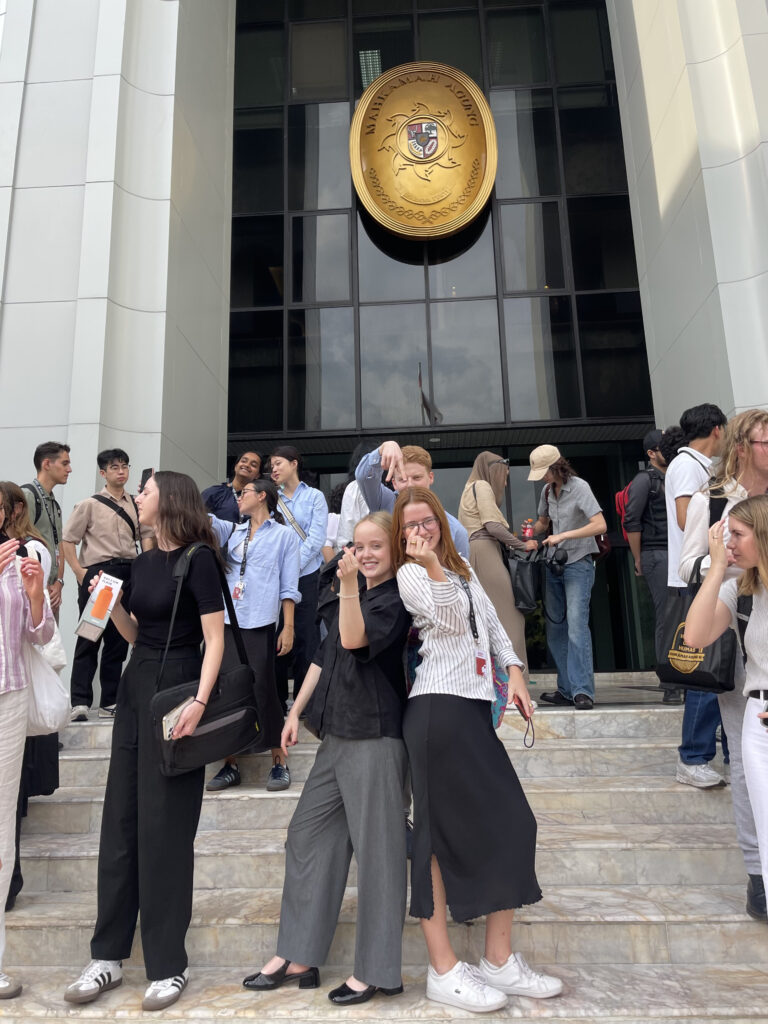
Q: How will the internship benefit or influence your future career?
It has inspired me to keep learning about Indonesia and pursue future job opportunities there. I am currently sitting in a cafe in Lombok studying Bahasa Indonesia and would love to continue learning this language, as I am passionate about strengthening the relationship between Australia and Indonesia.
Q: Would you recommend this program to your friends?
Absolutely.
Q: Favourite Indonesian word/phrase:
Nongkrong’, which means to hang out together.
Q: What did you get up to in your free-time? i.e. in the evenings and on weekends.
I spent a lot of time with friends I made during the program. We went to live music events, local restaurants, a trivia night, jazz bars, local events and art galleries just to name a few. On the weekends, I visited Bandung twice, Bogor and Ujung Kulon.
Q: What surprised you about Indonesia? Any new insights?
I feel embarrassed by my lack of knowledge about Indonesia before my arrival. I didn’t even know it was a majority-Muslim nation, and I had never visited one before. The first time I heard the call to prayer, I was completely unaware of what it meant. I was shocked at how little I knew about Indonesian politics despite the country being Australia’s closest neighbour. Upon arriving in Gatot Subroto, I was taken aback by the stark contrast between wealth and poverty — I had never seen such extremes before. Experiencing the kindness, friendliness, and communal spirit of the people I initially viewed as lacking compared to myself led me to reassess my preconceptions. I quickly realised that what I saw as their ‘lack’ actually revealed my own deficiencies. In many ways, my time here has reinforced my belief that the most important thing in life is community and the relationships we build with others. I feel really fortunate to have formed friendships in a city I might not have visited otherwise. Finally, I was surprised by how much I enjoyed the food, and I will actively seek Indonesian restaurants when I get home. Tempe orek and gado gado quickly became two of my favorite dishes.
On another note, I love live music, and I had no idea Jakarta would have such an incredible live music scene. I would highly recommend Zodiac for a dance, and there was even a DJ from Melbourne playing there one night. I think if more people knew how good the live music scene was in Jakarta, there would be fewer foreigners in Bali. Maybe we should keep this a secret among the Acicis interns, though!
